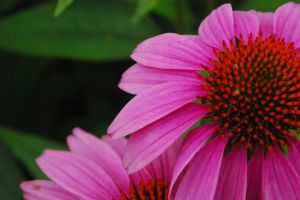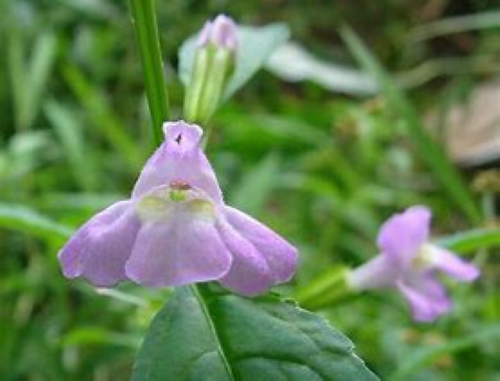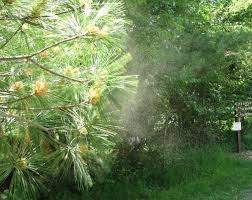__________________________________________________________________________________________________________
The Intelligence of plants

Check out the Earth Medicine Course to learn more about how healing herbs work!
______________________________________________________

The Intelligence of Plants
Plants have their own way of being, their own consciousness, and intelligence. Each plant is different and possesses unique characteristics and properties. Without the green world, there would be no other life here on this planet. We are given their gifts as food, medicine, protection, insight, guidance, and more. Plants deserve our respect not only for their physical form but also recognition of their spirit form as well.
Viewing the plant world in this way is intriguing. It involves working with old magic, just as we used to do and will help one develop a deeper connection with the plants themselves.
So, let's look at the question of plant intelligence, as there has been much debate about the possibility of plants having any intelligence at all. Plants do not have a nervous system or a brain, so our definition of animal intelligence cannot be directly applied in this case. So, what do we know about plant behaviour so you can make up your mind.

The plant world has been on Earth for a very, very, very long time. Plants communicate with each other, especially from species to species. If insects are infesting a tree, it will send messages to the other trees to raise their tannin levels because the insects do not like the bitter taste and will move onward. Sometimes, plants send chemical responses into the air to attract the predators of the insects infesting them, to tell the predators of an excellent meal.
These chemical responses also inform the rest of the plants and trees of what is happening, at which time the plants and trees receiving these messages will respond to protect themselves. These chemical responses could be likened to a call for help or simply could be broadcasting information to the rest of the ecosystem. Communicating and being self-aware of what is happening to oneself indicates intelligence to me.
Plants compete for water, sunshine, and nutrients. Some plants put their leaves over a neighbouring plant to jockey for better positioning to obtain more sunlight. Their root systems will crowd out and move into another plant's area to gain more nutrient soil. In some cases, a plant’s roots put out a poison that kills all other plants around it. Interestingly, plants know their sisters and brothers and do not compete in the same ways but share the resources. Possibly unselfish, altruistic behaviour?
Plants need to reproduce, which requires pollination, so they produce flowers with different colours and scents to attract bees and other insects to help spread the pollen. The fruit of many plants grows sweet and tasty to entice animals and birds to eat them and eventually defecate the seeds. This allows the seeds to travel further afield, thus populating new areas.


Plants use many other ways to distribute their seeds. They may work with the wind spirits to move their winged seeds when the time is right. The seeds themselves know when the time is ripe for sprouting and will wait in dormancy until then. Other plants, notably the stately burdock, create seeds that attach themselves to passersby and travel to new lands that way. Others grow beside waterways, sending their seeds floating onto new territories. It sure sounds pretty smart to me.

Rose of Sharon
I once read a story about a Rose of Sharon plant growing on a fence along a sidewalk. One day, the property owner noticed that someone had violently torn the flowers and stems away, leaving a gaping hole in the plant. The woman observed that the injured area of the plant never grew in that direction again; instead, it grew inside the fence and further down. Learning from and adapting to experience?
Some plants which are parasitic such as the Dodder vine need a host within seventy-two hours of coming through the soil. Tests have been done that show this little sprout swirling in a circle, growing longer and longer as it seeks out the perfect host. It will usually choose a softer plant such as a tomato plant so it can easily absorb itself and become one with the plant. Seizing an opportunity seems to imply some awareness.
If the definition of intelligence is "the ability to acquire and apply knowledge and skills,' the green world passes the test with flying colours!
Wendolyn Murdoch (C)

Check out the Earth Medicine Course to learn more about how healing herbs work!
______________________________________________________
Disclaimer: The information, including but not limited to, text, graphics, images and other material contained on this website are for informational purposes only. It is not intended to be a substitute for professional medical advice, diagnosis or treatment. Always seek the advice of your physician or other qualified health care provider with any questions you may have regarding a medical condition or treatment and before undertaking a new health care regimen.
The owner of these written materials makes no claims as to the accuracy or completeness of any of the information, including any links. The owner will not be liable for any errors or omissions in this information.





